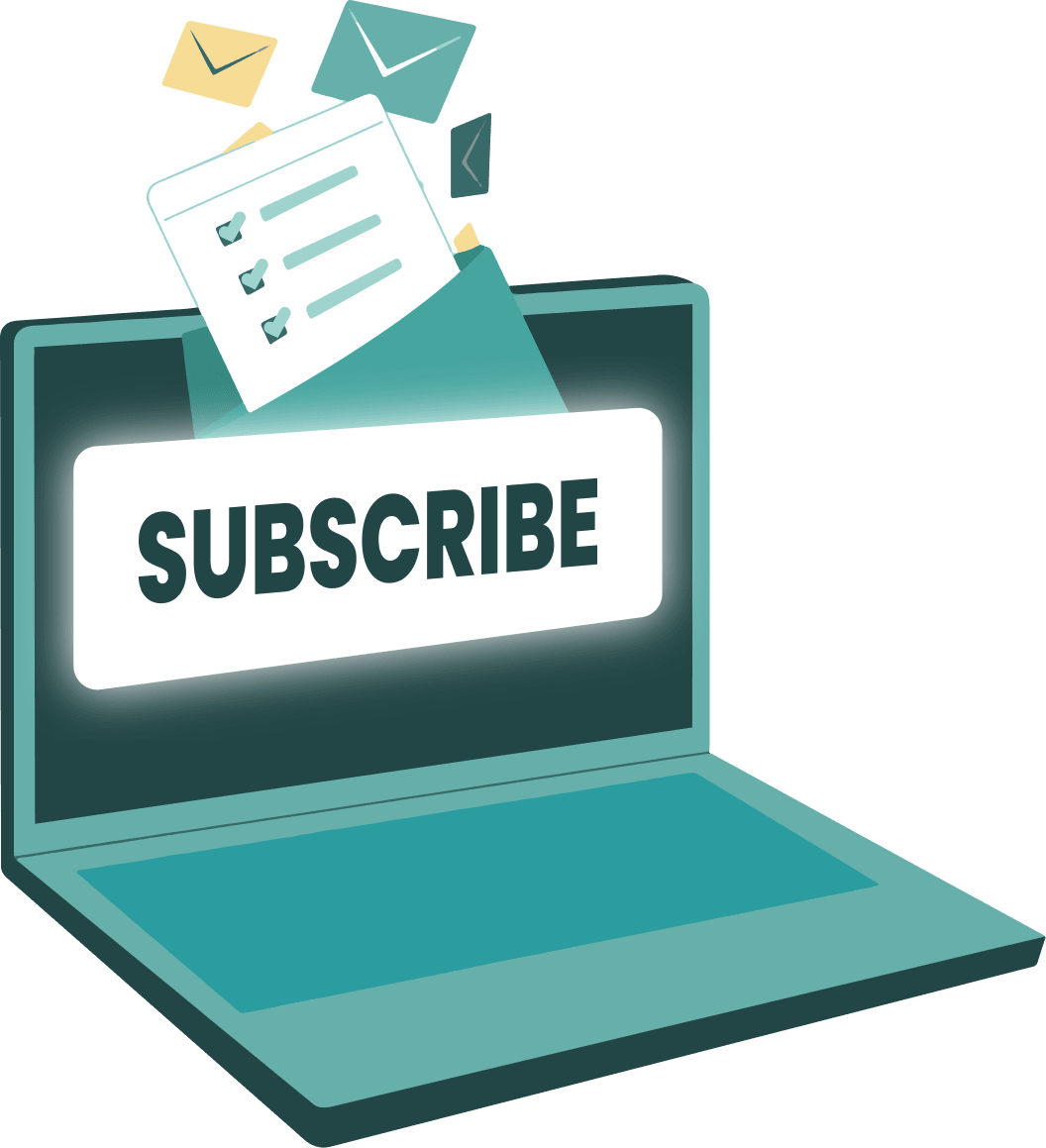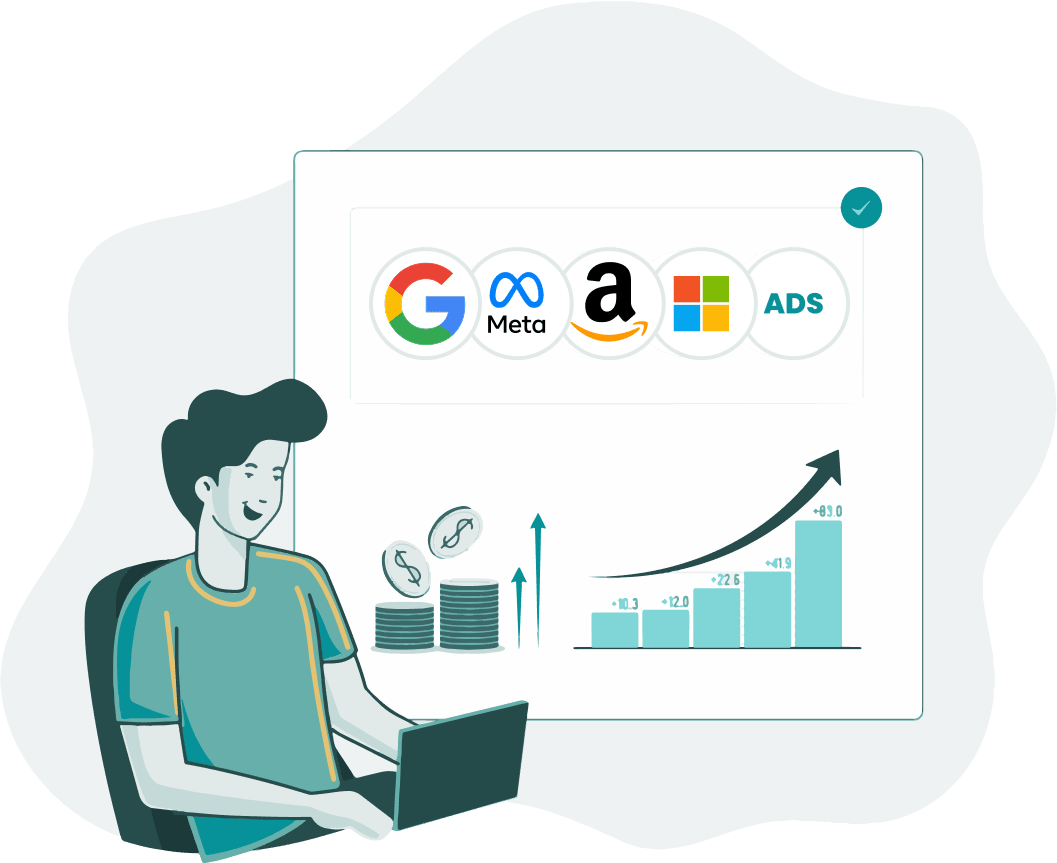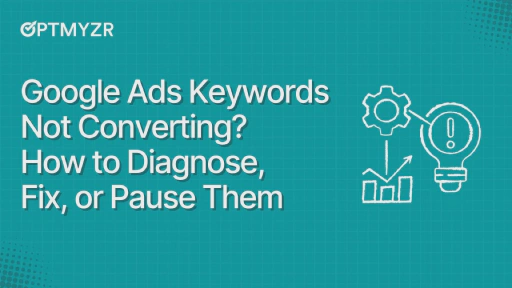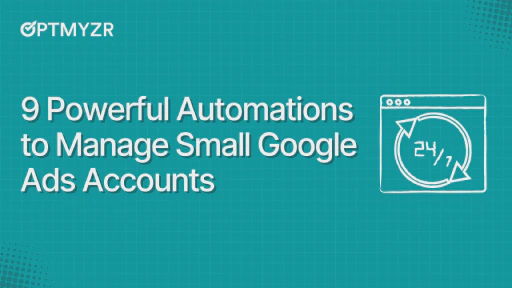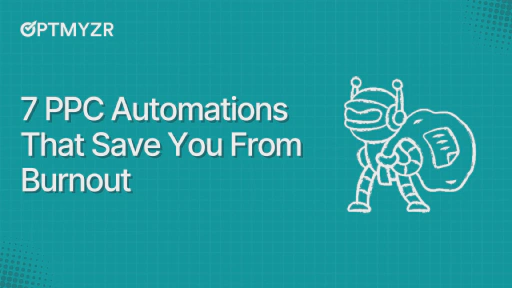It’s 2025, and Generative AI is everywhere: from writing social posts and turning vague client notes into actual meeting agendas, to planning your next trip. It’s undeniably impressive.
When it comes to PPC, there’s more at stake than convenience. Choose the wrong AI recommendation, and you risk wasting precious budget, losing valuable time, and eroding client or stakeholder trust.
That’s why more PPC professionals are asking a critical question: Is AI actually making ad management easier — or just adding more work?
Generic AI has limits. Marketers need AI tools for PPC that go beyond content generation: they need real-time insights, automation, and smart recommendations. That’s why more teams are moving toward dedicated AI in digital advertising platforms like Optmyzr.
Unlike general-purpose tools like ChatGPT, Optmyzr’s AI is trained on PPC data. It understands your campaigns, works with your goals, and helps you act, not just analyze.
Why PPC marketers are ditching generic AI for purpose-built tools
1. Manual analysis still eats up time.
Running audits, creating reports, and diagnosing issues takes hours. Multiply that by every account you manage, and the time drain becomes unsustainable.
That’s why more marketers are turning to intelligent automation in digital advertising. They want AI trained on billions in ad spend and platform-level trends (like Optmyzr’s), not just surface-level prompts. That difference leads to faster, sharper insights, and actually built for PPC decision-making.
2. Generic AI often adds more work than it solves.
Tools like ChatGPT, Claude, or Perplexity might sound impressive at first, but they’re not really built for PPC. They only know what you tell them, which means you have to constantly feed them data, explain your campaigns, describe your audience, and spell out your goals. Even then, their answers can be vague, off-target, or just not that helpful.
Instead of saving time, it often feels like you’re doing extra work just to get a decent response.
3. Fragmented workflows across many tools slow you down.
One of the biggest PPC headaches is jumping between too many tools: ad platforms, spreadsheets, chat apps, AI copywriting tools, and design platforms.
It gets messy fast. Things fall out of sync, mistakes creep in, and before you know it, you’re spending more time managing tools than managing campaigns.
And let’s not forget the cost of maintaining all those separate tools year after year.
4. There’s pressure to “use AI“ without a strategy.
With everyone jumping on the AI bandwagon, it’s easy to feel like you’re falling behind if you’re not using it. There’s a lot of pressure from clients and leadership to “do more with AI”, even if it’s not always clear what that really means.
The truth is, it’s not about using AI everywhere — it’s about using the right kind of AI. What you really need is something that delivers a real performance edge, not just another buzzword.
5. There’s a risk of costly mistakes.
When budgets are tight (like in this tough economic period), one wrong tweak can tank performance. Generic AI often doesn’t know your goals or data well, so it becomes difficult to trust it to make crucial decisions.
ChatGPT vs Optmyzr: Built for different jobs
Feature | ChatGPT | Optmyzr |
|---|---|---|
Purpose | General-purpose AI chatbot | |
Ad platform integration | No direct access | Full integration with ad platform API |
Campaign understanding | Needs constant prompting | Understands your structure & goals |
Actionability | Suggestions only | Instant execution from the same platform |
Output quality | Prone to AI hallucinations | Trained on PPC data, context-aware |
Generic AI might be useful for inspiration. But when it comes to high-stakes campaign decisions, marketers are choosing tools that offer deep context, reliable insights, and direct action — all in one place.
What do PPC pros actually want from AI?
Having tested the waters with generic AI, performance marketers now have a clearer picture of what actually drives value, and it’s not just clever suggestions. They want AI that works like a teammate, not another tool to manage.
That means looking for a smart automation platform that:
- Understands your unique account setup, industry, and goals, and delivers trustworthy, ready-to-use insights
- Lets you apply approved recommendations instantly, without switching tools or waiting around
- Replaces scattered toolkits with a centralized command center
- Gives suggestions that are aligned with performance and profitability
- Is trained for PPC — not just another generic AI that “kind of works”
Let’s see what this looks like in action at Optmyzr.
4 real ways Optmyzr’s AI saves time and boosts ROI
1. Account & competitor analysis and optimization
Managing PPC used to mean hours spent digging through dashboards and spreadsheets just to figure out what was working and what wasn’t. It took time, effort, and often left you feeling drained.
But that changed with Optmyzr’s Sidekick, the AI PPC Assistant built right into your Account Dashboard. As soon as you log in, the Sidekick gives you a fresh summary: one win, one potential issue, and one smart recommendation. You don’t even have to ask.
Example: Say your conversions drop unexpectedly. You don’t have to play detective and analyze the Change History. Just ask Sidekick, and it tells you exactly which recent changes might have caused the shift.

While you’re focused on your own performance, the Dashboard is also keeping tabs on your competition. It shows you who’s entered or left your auction space, so you’re never caught off-guard.

When audit time comes, you don’t need to wade through long PDFs. Sidekick breaks down what’s working, what needs fixing, and even highlights key spend patterns — like which hours and days drive the best results. It’s like having an always-on strategist that keeps your account sharp.
2. Ad and campaign creation
Imagine you’re setting up campaigns for an online store: the product feed is ready, but turning it into structured, high-performing campaigns takes time. With Optmyzr’s Campaign Automator, all you have to do is connect your inventory data, and the system takes it from there.
Not sure how to structure it? AI can suggest a template based on your inventory, industry vertical, and goals. You can always tweak it, but now you’re starting with a strong foundation.
The AI also handles the smaller details, like sitelinks and callout extensions, suggesting multiple options at once so you can pick what fits best. And when it’s time to write ad copy, you’re not staring at a blank screen; the AI scans your site and offers relevant headline and description ideas, ready to go live or refine.

3. Reporting
Creating client reports is one of those tasks that eats up hours, even though most of it feels repetitive. With Optmyzr, reporting is as simple as typing a request. Want a conversion-focused summary for last month? Just say so, and the system generates a report draft instantly.

You can even fine-tune the tone or focus. Whether you want to highlight growth, cost-efficiency, or key shifts, the AI tailors the narrative to fit your goals.
Charts also come with plain-language summaries so stakeholders can grasp trends without needing to interpret graphs.
Watch how Metrik Marketing impressed their clients by adding Optmyzr’s AI-powered summaries to their reports:
4. Ecommerce campaign management
Shopping and Performance Max campaigns come with their own unique challenges, especially when it comes to structure. One of the biggest questions advertisers ask is, “How do I split my campaigns?”.
Optmyzr helps take the guesswork out of this. Much like how Campaign Automator helps with Search & Display, Optmyzr’s AI for e-commerce suggests the best structure for Shopping and PMax based on your goals and feed data.

It also ensures that your structure stays within Google’s limits, so you won’t end up creating more entities than the platform allows.
Missing product titles, brand fields, or descriptions in your feed? Optmyzr flags those gaps and uses AI to suggest best-practice and SEO-friendly content, pulling from your product pages and what’s working in the industry.
You spend less time cleaning up your feed and more time launching campaigns that work.
Turn insights into action
Optmyzr doesn’t just surface insights, it helps you act on them instantly. On one platform, you can:
- Spot high-spend days and shift budget to top-performing campaigns
- Pause or exclude low-performing keywords, placements, or PMax listing groups
- Update your ad copy with expert AI suggestions
- Approve and push these changes directly to Google Ads
A smarter way to think about AI in PPC
AI in PPC shouldn’t be about chasing trends — it should be about solving real problems. You don’t need a chatbot that waits for instructions; you need a platform that understands your campaigns and acts with context.
Prompted AI like ChatGPT can generate ideas, but it requires constant input and rarely knows your goals or data. Trained AI like Optmyzr is built for paid search, so it surfaces the right insights fast and helps you act on them right away.
That’s the difference between a tool that talks, and one that truly works with you.
Here’s what Deki Hoek, Channel Manager, BBQGuys, had to say about Optmyzr’s AI:
“Optmyzr’s value extends beyond features. Their agility in adapting to platform changes and introducing new capabilities ensures our PPC strategy stays future-proof. In short, Optmyzr isn’t just a tool; it’s a strategic partner, accelerating efficiency and growth in our PPC operations.”
They achieved a 7.34 ROAS while cutting Google Ads management time in half — all by switching to AI that’s actually built for PPC.
Now it’s your turn to stop managing AI and start letting it manage smarter for you. Start your 14-day free trial with Optmyzr’s PPC-trained AI today — and experience the difference that purpose-built automation makes.
Frequently asked questions about AI by advertisers
What are the benefits of AI-powered automation? It saves you hours by handling repetitive tasks like analysis, reporting, and optimization. You get faster insights, fewer errors, and more time to focus on strategy.
Which are the best AI tools for PPC? The best tools are those that understand PPC deeply. Optmyzr is a great example; it’s built specifically for paid search, unlike generic AI models like ChatGPT or Claude.
Are AI-powered insights accurate? When trained on real campaign data like Optmyzr’s AI, insights are highly reliable, especially compared to generic suggestions from AI not trained on PPC. That said, no AI is perfect. It’s always a good idea to review insights before applying changes, just like you would with any recommendation.
Can AI manage Google Ads campaigns? Not directly, but with tools like Optmyzr, AI can analyze your campaigns and recommend smart optimizations. While the AI itself won’t make changes automatically, you can review and apply those suggestions directly within Optmyzr without switching platforms.
How do I know if my AI tool is hurting performance?
If you’re spending more time validating AI suggestions than executing them, seeing vague or off-target insights, or noticing inconsistent results, your AI may be working against you. A good PPC AI should save time, align with your goals, and improve outcomes, not add friction.
When does AI actually help with ad optimization? AI helps most when you’re working with large volumes of ads and need quick, data-driven suggestions. Tools like Optmyzr’s AI can recommend high-performing headlines and descriptions, suggest sitelinks and callout assets, and even highlight underperforming ad copy to tweak. Instead of guessing what might work, you get suggestions based on your own performance data, which you can review and apply instantly.





